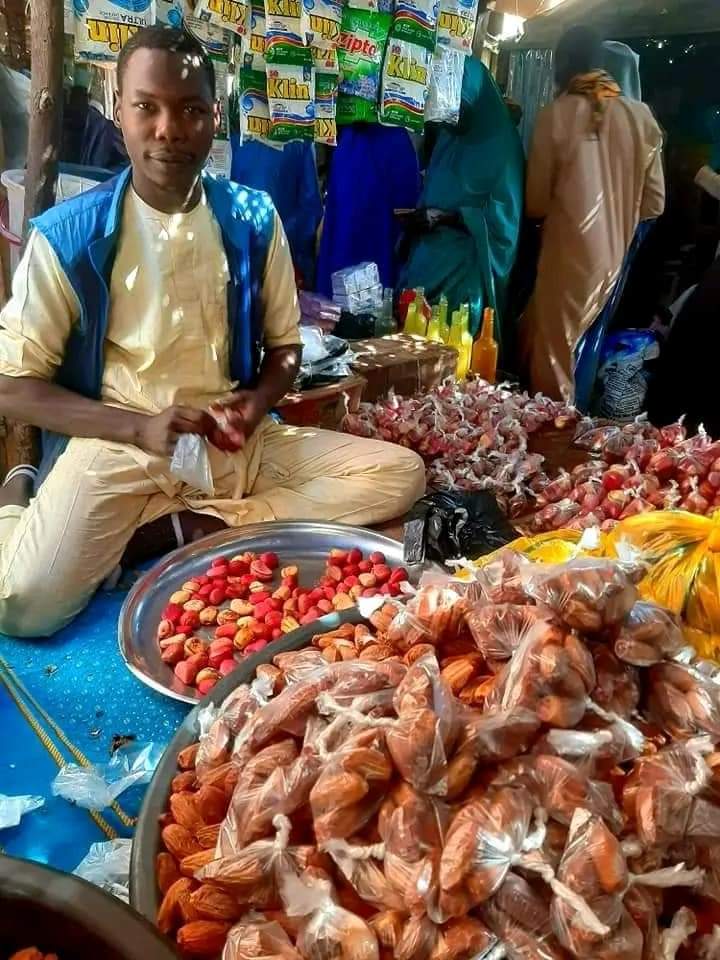Damasak: From despair to hope,
the tale of an agric town hit by Boko Haram, striving to get back on its feet
By Ademola Adebayo
Iliyasu, Habib and Hassana were very brilliant school kids known for their dexterity at memorizing mathematical formulas. Their father Mallam Moh (Neptune Prime chose to conceal his identity for security reasons), was a social worker in one of the health centres in Damasak. Knowing the importance of modern education, he left no stone unturned in ensuring that his three children had the best of formal education – at least as much as he could afford.
Damasak town is a garrison town and the capital of Mobbar Local Government Area (LGA), populated by roughly 56,000 people including roughly 10,000 internally displaced people (IDPs) resident in camps and within the host community.
In March 2015, on a day residents of Damasak town least expected, terror struck. Boko Haram insurgents strolled into the community and headed for one of the Islamic schools where Mallam Moh’s children were learning from the verses of the Holy Quran. They rounded up teachers, students, including Habib (6) and Hassana (10).
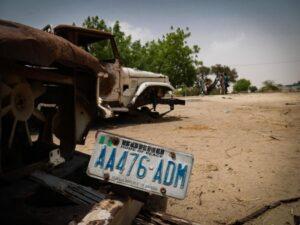
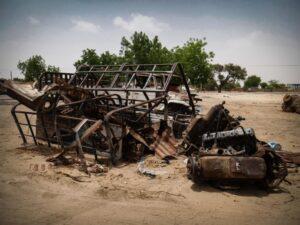
“I was already on my way home from work that day”, Moh narrated to Neptune Prime.
“I suddenly saw people running helter skelter. Not knowing what the problem was, I made a detour towards the evening school of the children. From past experience living here, when one sees such panic among people, it’s a signal of an attack by the terrorists.”
The sand dragged under Moh’s feet, he turned his face up to the skies as if seeking for some divine intervention to quicken his steps to where his children were supposed to be. He was late.
It’s now nearly nine years since Moh’s children were seized by the militants, and there have been no words from their captors concerning their whereabouts, and so far government efforts towards securing their release has not yielded meaningful results.
READ ALSO: UN suspends humanitarian operations in Damasak, Dikwa after terror attack
On the day they were kidnapped, Boko Haram militants seized hundreds of other school children in Damasak, according to a report by Human Rights Watch (HRW) released in March 2016.
The numbers of school children taken by Boko Haram in Damasak exceed the 276 schoolgirls who were kidnapped from Chibok in April 2014.
But unlike the Chibok abductions which gained global attention and massive calls for action, the Damasak kidnappings was hardly reported in the media. And while the ‘Bring Back Our Girls’ movement that has been pressuring the government to rescue the missing schoolgirls continues to be heard, there has been no pressure group doing same for the kidnapped Damasak students.
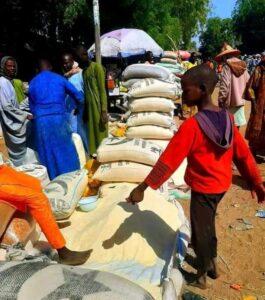
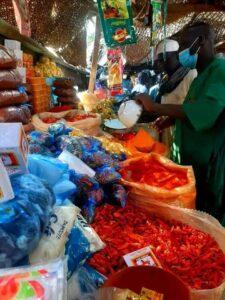
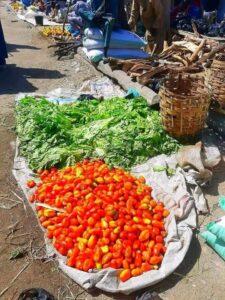
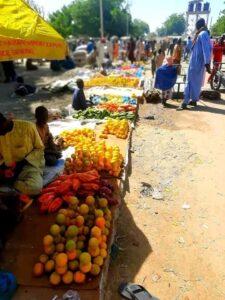
A newspaper report of 26th April 2017 quoted Major Muhammed Kaigama, of 145 Battalion Nigerian Army stationed in the town as saying “there is no new information on the location of the kidnapped children of Damasak. If we have any information regarding that, we will work towards it.”
According to the Office for the Coordination of Humanitarian Affairs (OCHA) working in Nigeria, attacks on Damasak intensified on an alarming scale which triggered the evacuation of humanitarian staff and led to the displacement of thousands of residents.
According to the OCHA, some of these attacks led to the destruction and damage of life-saving humanitarian assets and infrastructure and the suspension of life-saving humanitarian assistance, particularly food, water and health services.
Damasak town is the only accessible area of Mobbar LGA to humanitarian actors, and as a result has served as a destination for people displaced from surrounding communities in the LGA.
Fast forward to 2020, Damasak started to experience some peace and tranquility. Residents of the town started to return in their numbers following assurances by the Nigerian Army as well as the Borno State Government of their safety.
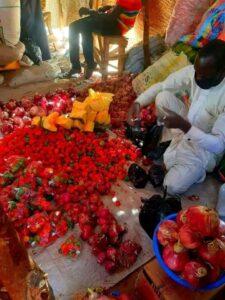
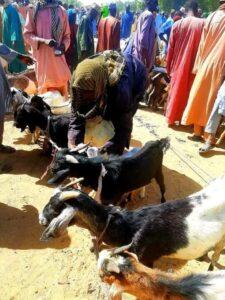
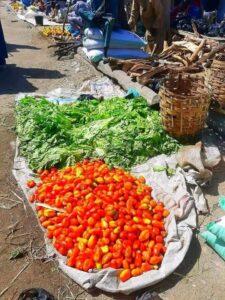
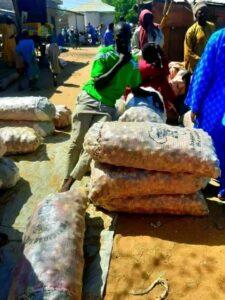
Despite Boko Haram’s black insignia that is still visibly daubed on the walls of destroyed buildings lining the main street of the once boisterous settlement, the people have decided to forge ahead, reclaim their lives and reposition for the hope of a better tomorrow.
Amongst the residents full of hope for a renewed town is Mallam Moh. Despite his two children Habib and Hassana still missing for almost nine years, he finds consolation in his eldest son Iliyasu, who is a farmer and marketer of agricultural products in Borno state. Iliyasu was in Maiduguri in 2015, when his younger siblings were abducted.
Now together with his father, they concentrate on farming potatoes, tomatoes and onions in commercial quantity to be sold to local markets and beyond.
“It is painful living without Habib and his sister. They were really lovely children. I lost their mother to cancer in 2010. Since then I have been the only one taking care of them. At some point I wanted to take another wife, but I just felt I needed to bond more with the children before doing that,” Moh said.
Nine years down the line, Moh now has a new bride, and Iliyasu, a step mum.
Damasak known for its boisterousness in agro products is now wearing a new look. Markets are back, bigger and more functional. In December of 2021, Damasak town was enveloped with jubilation when the Nigerian Army re-opened the major/international market that provides sources of living for thousands of the residents of the area who are mostly into farming and trading.
Food trucks in their hundreds now go in and out of the town, with many farmers smiling to the bank from market sales.
“We thank God for the new life we have in Damasak, we pray things stay this way. A lot of us here have one bitter story or the other to tell concerning Boko Haram. But we thank God now. As you can see, commercial activities have picked up, but there is still the challenge of the farmers having to deal with bandits every now and then,” says Iliyasu who recently lost four truckload of potatoes to bandits on the highway connecting Maiduguri to Damasak.
For now, the rebuilding process seems to be an upward trend, and hopefully it will remain so. As residents of Damasak bask in this newfound euphoria of peace and tranquility, Mallam Moh is still keeping hope alive that one day he will again get to see his children and create a more memorable future.
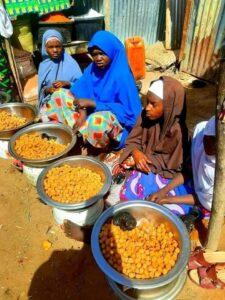
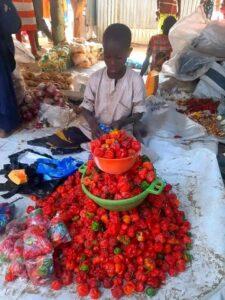
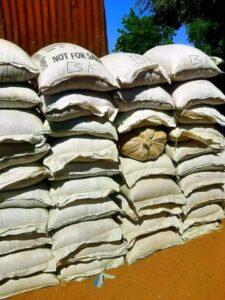
This report is produced by Neptune Prime with support from the Wole Soyinka Centre for Investigative Journalism (WSCIJ) under the Collaborative Media Engagement for Development Inclusivity and Accountability project (CMEDIA) funded by the MacArthur Foundation.
Follow the Neptune Prime channel on WhatsApp: https://whatsapp.com/channel/0029Va74ZvU2v1IqKByXoX3d
Do you have breaking news, interview request, opinion, suggestion, or want your event covered? Email us at neptuneprime2233@gmail.com

